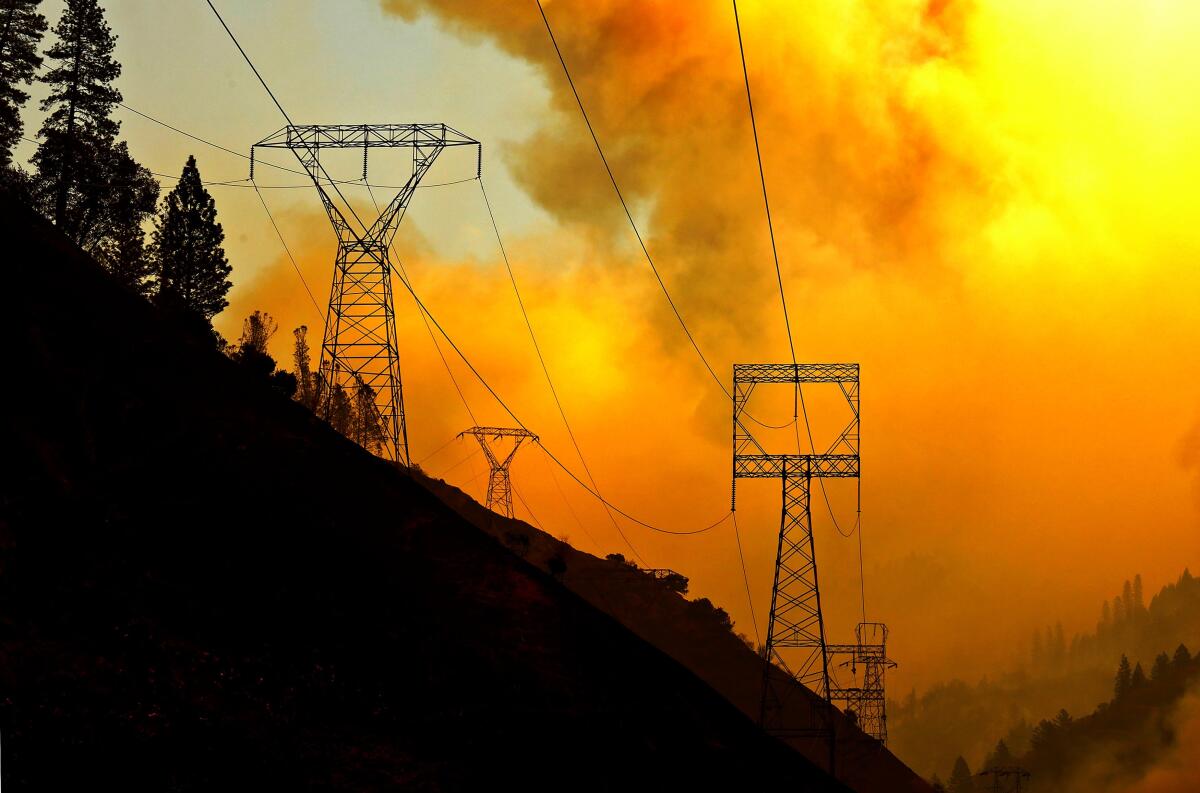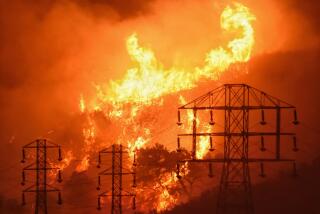Editorial: It’s no government takeover of PG&E, but it’s still a possibility for the state’s most dangerous utility

It’s not the government takeover that many Californians were hoping for in light of the massive utility-sparked fires in recent years and the bungled “public safety power shutoffs” last fall. But the deal that Gov. Gavin Newsom struck with Pacific Gas & Electric last week to let the state’s largest and most dangerous utility exit out of bankruptcy will bring some badly needed new oversight — and possibly new ownership.
If approved by a bankruptcy judge by June 30, the deal will allow PG&E to continue operating, but only under an unprecedented level of government oversight and regulation. Among other things, the utility will have to overhaul its board of directors to meet new government mandates (for example, half of the board’s members will have to be California residents, and some seats must be filled by safety or management experts). New board members will be subject to gubernatorial approval.
In addition, shareholders won’t be paid dividends for three years and the Public Utilities Commission will have more power to step in to preempt problems with the utility’s management, rather than just the power to fine the company after it does something wrong.
And if PG&E fails to hold up its side of the bargain or exit bankruptcy by the June 30 deadline? Under the deal with Newsom, the utility will have to sell its operation to a nonprofit entity for a price determined by a formula spelled out in the agreement. Think of it as the takeover trigger pointed at the utility’s head.
It’s too bad that these measures are necessary, but PG&E has a shameful history of putting profit ahead of investment in safety and reliability measures — and a track record of deadly, disastrous results, including a gas pipeline explosion in San Bruno in 2010 that killed eight people and the Camp fire sparked by a power line in 2018 that killed 85 people and nearly wiped out the foothill community of Paradise. (The company announced separately Monday that it had pleaded guilty to 84 counts of involuntary manslaughter in connection with that fire.) The utility is now in bankruptcy because of billions of dollars in liabilities stemming from previous massive wildfires.
Ideally, PG&E’s deal with Newsom marks the beginning of the end of this sad saga. In these difficult times, the last thing Californians need to worry about is whether their power company can keep the lights on without setting more wildfires.
More to Read
A cure for the common opinion
Get thought-provoking perspectives with our weekly newsletter.
You may occasionally receive promotional content from the Los Angeles Times.










